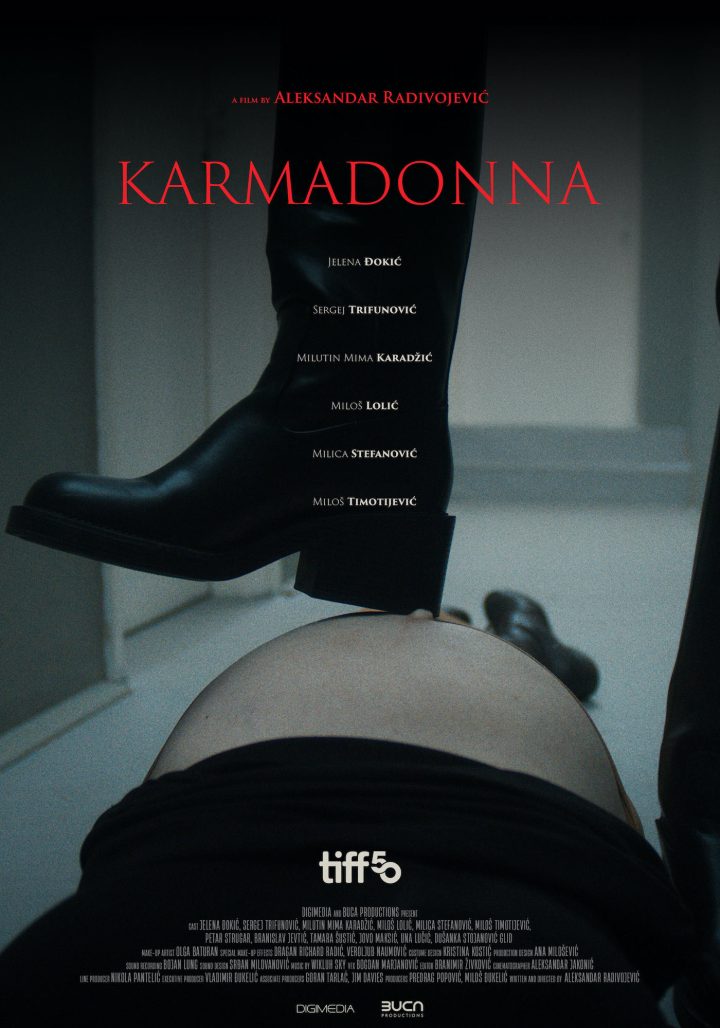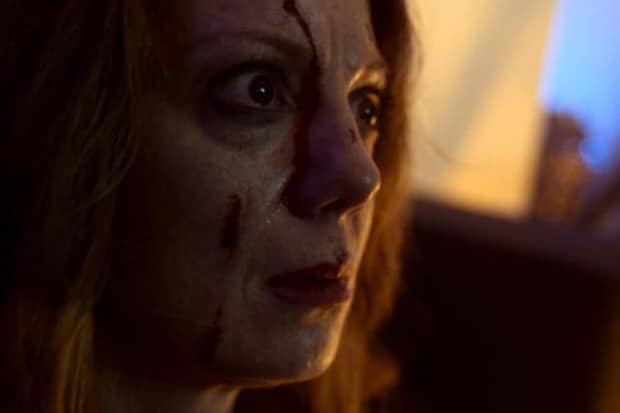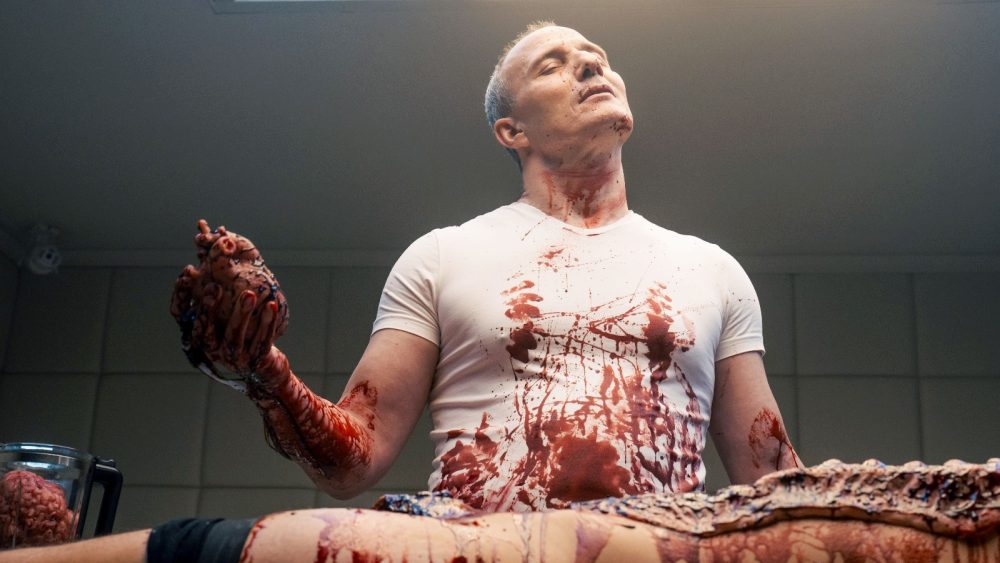Serbian screenwriter Aleksandar Radivojevic is angry. He has reason to be. He’s the person responsible for the script behind the infamous A Serbian Film (dir. Srdjan Spasojevic), a movie about the horrors of the underground porn industry and how perversion drives it. Though he’s spoken about how the movie’s supposed to reflect the corruption of Serbia’s government and how all the bad things that come from it bleed into society, it has haunted him since it released back in 2010. The movie was labeled as torture porn of the worst kind, a glorification of depravity and poor taste. Some called for swift cancellation, as if he were a bad influence that needed purging.
It’s in this social media firestorm where Radivojevic finds the bones of his next movie, Karmadonna. It would’ve surprised no one if the movie turned out to be a 2-hour long rant on cancel culture and the fragility of the newer generations. And while there’s a bit of it there, Radivojevic finds so much more to be angry about. Larger, more important things at that.


Karmadonna follows an older pregnant woman called Jelena (Jelena Djokic) as she randomly receives a phone call from a god that orders her to kill people he believes deserve to die. The first few targets go from mental health influencers to the kind of people that get sucked into their orbit. The list grows to include Serbian media personalities as the story evolves. Jelena refuses at first, but she quickly complies after she’s shown evidence of the voice’s power and its capacity to make terrible things happen at will. And then, the kicker. If she doesn’t play ball, the god will kill her unborn baby.
The movie’s first half hour can come off as an excuse to tell everyone he doesn’t like to fuck off. The voice’s dialogue is blunt and unapologetic, sounding more like a soapbox for the director’s rage rather than as a disembodied character of its own. But, as Jelena navigates her new predicament, Serbian society’s cruelest elements start rearing their heads and the voice is afforded more complexity and character development.
Shortly after Jelena decides to follow orders, the voice starts reminder her of how bad things have gotten. Men are seen treating women like objects that need to be kept in line, Jelena’s age is constantly being thrown in her face as if she were less because of it, and TV shows brandish their sexism as status quo. Slowly, Radivojevic’s ire starts taking form, and what started out as pure cynicism turns into something of a call to arms against the worst things that afflict the present time.


The story’s unafraid to go quite Biblical in scope and tone. Change for Radivojevic is well beyond passive means. It requires a degree of ruthlessness that’s not unlike the kind found in religious discourse. A societal reset would be a more respected solution than a non-violent protest that gathers massive crowds for a single day. And yet, the movie is careful in identifying who deserves our wrath.
Karmadonna thrives in its baroqueness. Bad people are moral voids, sex is manipulation, and people are hellish entrepreneurs that would rather put a messianic figure on TV for ratings rather than to offer a chance at salvation. Jelena fits into this madness as a figure that can grow into action, that is allowed to indulge her disappointment in the world so she can meet it in kind. In a sense, Radivojevic tells audiences that it’s okay to get fed up, and that’s there’s nothing wrong with imagining wildly confrontational ways of dealing with it.
One thing that stood out is the movie’s use of the supernatural to hit the point harder in certain sequences. Whenever the voice decides to enact his powers, the eyes of his victims turn orange. The effect works well throughout, but there’s a certain scene in which a character that goes on to become important addresses the audience directly as he performs some truly terrifying things on another character. It’s simply one of the best horror sequences in quite some time and the eye color change goes a long way in making it even more effective. It evokes demonic imagery, signaling our ability as humans to go from bad to worse to the detriment of others.


Karmadonna is a movie about showing your displeasure at the people that make things worse. It’s never unfair, though. It identifies wrongs, demands we stare at them for a long while, and then asks what we plan to do about them. It has a sadistic sense of hope that keeps it from falling into fatalism. It’s a scream, the kind we sometimes associate with older people who are unhappy with what the younger generation is bringing to the table. But if the movie proves one thing, it’s that the young would do well to join the older generations in screaming at the dark clouds that are now more frequently rolling into the sky.



